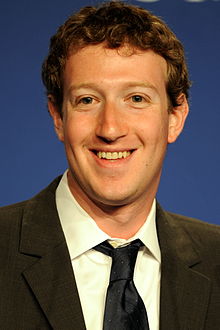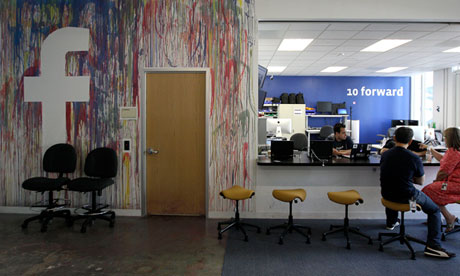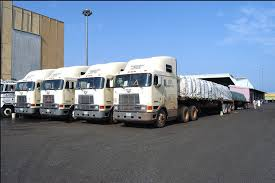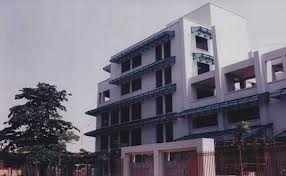
In the 2014 list of richest men in the world by Forbes, Facebook owner, Mark Zuckerberg was rated 14th richest man in the world while Nigerian Aliko Dangote of Dangote Group emerged 35th on the list.
I was wondering why Dangote, with all the mega plants, the giant factories, assets, all over Africa will not be richer than Mark who owns just Facebook (both are public companies, so not 100% ownership, but let’s loosely refer to them as owners for our purpose).
Facebook revenue is majorly advert. Dangote’s money comes from sale of tangible goods. I felt the latter should ordinarily be richer.
I got two of my friends analyse this:
Nnaji: Facebook is a service-based enterprise, Dangote Group dwells more on tangible goods. The middle line (expenses) for manufacturing entities are very huge and they mop the top line (Revenue), leaving the bottom line (profit) lower. A service-based enterprise doesn’t require much expense, just your brain and few equipment. With huge revenue, and relatively low operating cost, your profit will be massive. Don’t forget goods based entities have tendency to borrow more and spend huge fortune servicing debts, which also shoot up their middle line and hit their bottom line.
Daniel: Nnaji’s explanation is valid at the basic level: Heavy fixed costs weigh down on a business’s ability to adjust quickly to changing market situations – How quickly can Dangote set up their operations in India compared to Facebook, for example? By how much does a business’s fixed cost need to grow for it to expand output above the capacity of its current plant? The term that answers these questions is called scalability in the startup world. Facebook is more scalable than Dangote. Investors would value Facebook more because it has more scope to grow much faster than Dangote. But that does not tell all the story.
>First, market valuation from which a founder’s worth is derived is mostly determined by the size of stock market activity. On that count, Facebook is expected to be more valuable than Dangote since the NYSE sees much more activity than the NSE and the Johannesburg exchange where Dangote is currently listed.
> A firm’s market valuation is usually an overestimation of its book value. So the valuation of web-based companies is always more murky than brick and mortal companies because ‘intangibles’ make up the bulk of their value. So Facebook’s value would tend to be far more overstated than Dangote’s.
> Then there’s the issue of the location of the company’s main operations. A barber shop in the New York will be valued much higher than a barber shop of the same financial outlays in Lagos.
>Facebook is a global giant. Dangote’s operations are mostly in Nigeria (even though it’s making inroads into other parts of Africa, a big chunk of its operations is in Nigeria). This means that FB has access to a much bigger market. It also means that it’s operational risks are better spread than Dangote’s.
>Facebook represents the new kind of business model on ascension while Dangote is the traditional model which new businesses are looking to disrupt. New businesses with a proven model get more overvalued in the US.
>And then there’s the controversial cultural perspective to valuation. Chinese culture (for example) favours brick and mortar businesses and would tend to overvalue Dangote and undervalue Facebook. Americans, who make up the bulk of global investors, feel very much at home with web businesses. So the heavy physical assets that Dangote has does not give him excessive valuation advantage than Facebook. Jack Ma’s listing of Alibaba on the NYSE after failing to meet the knotty requirements of the Hong Kong stock exchange perhaps shows how at home the US is with web businesses.
***Facebook also has heavy investments in data centres worth hundreds of millions, possibly billions, of dollars. I accepted your premise that Dangote has more physical assets than Facebook to simplify the analysis.
Established in March 2013, JarusHub is a Nigerian information hub with focus on career and management. It is rated Nigeria's most authoritative destination for online career resources. It parades an array of Nigerian professionals who share their career experiences with a view to bridging career information gap and mentoring a generation to success. Whether you're a student, a recent graduate or an established professional, or even an executive, you will always find something to learn on JarusHub. All enquiries to jarushub@gmail.com or 0808 540 4500. Facebook: www.facebook.com/jarushub; Twitter: @jarushub or @mcjarus.
ANDELA NIGERIA APPOINTS OMOWALE DAVID-ASHIRU AS NEW COUNTRY DIRECTOR
September 13, 2018
2 comments
Let us have your say by leaving a comment belowCancel reply
Recommended For You
-
Top 5 Skills Needed for the Future of Work
June 8, 2020 -
Focus on Career: Chemical Engineering
October 1, 2013









[…] Nnaji: Facebook is a service-based enterprise, Dangote Group dwells more on tangible goods. The middle line (expenses) for manufacturing entities are very huge and they mop the top line (Revenue), leaving the bottom line (profit) lower. A service-based enterprise doesn’t require much expense, just your brain and few equipment. With huge revenue, and relatively low operating cost, your profit will be massive. Don’t forget goods based entities have tendency to borrow more and spend huge fortune servicing debts, which also shoot up their middle line and hit their bottom line. Continue… […]
Also acquisition also forms a major part of adding to net worth. Most tech giant buy up competing products and apps, Facebook acquired instagram and also Whatsapp’s for billions of dollars same way apple acquired beats by Dr Dre, adding to their net worth despite purchase consideration, this keeps them untop and rakes in much more dangote hardly acquires companies …..